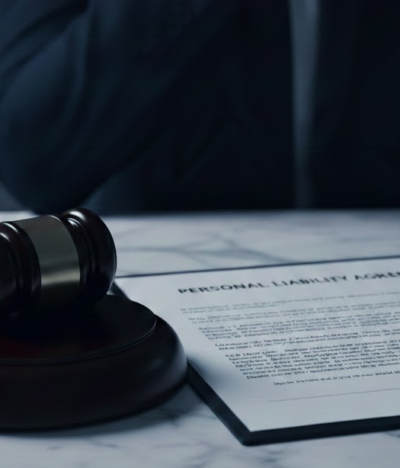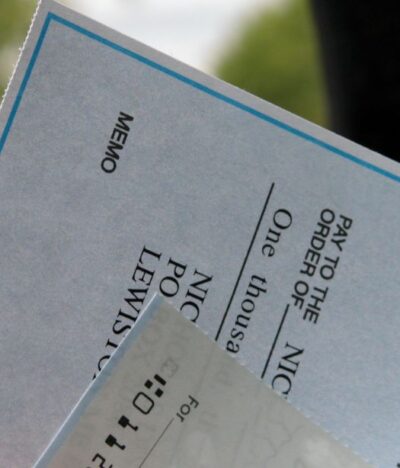Can an LLC Member Sue for Distributions? Know Your Legal Rights as a Member in Florida
If you’re a member of a limited liability company (LLC) and believe you’re not getting your fair share of distributions, even though the company made profits, you might wonder: “Can an LLC member sue for distributions?”
In most cases, yes, but only under specific circumstances. Whether you have an entitlement to receive distribution, LLC member lawsuit options often depend on your operating agreement, Florida law, and the specific facts of your case. Understanding your rights, the process, and what’s at stake (including personal assets) is crucial before moving forward.
Whether a member can sue for distributions depends on the operating agreement, state law, and LLC finances.
Direct lawsuits focus on rights unique to the member; derivative suits address harm to the LLC as a whole.
Legal action is rarely the first or best step; negotiation and professional guidance are strongly recommended.
Table of Contents
Can LLC Members Sue for Distributions? The Fast Answer
Understanding LLC Distributions and Member Rights
The Role of the Operating Agreement
Direct Lawsuits vs. Derivative Actions
What Grounds Are There for a Lawsuit?
Risks and Considerations for Suing an LLC (and Its Members)
How Florida Law Applies (The Uniform Limited Liability Company Act)
Steps to Take if You Are Not Receiving Distributions
Quick Summary
Frequently Asked Questions (FAQs)
Get Professional Help: Free Quote
Can LLC Members Sue for Distributions? The Fast Answer
Yes, members of an LLC may sue for unpaid distributions in certain situations. Your right, or entitlement to receive distribution, LLC member lawsuit, generally depends on:
What your LLC’s operating agreement says about receiving distributions
Whether the LLC actually made profits available for distribution
If managers or other members have breached fiduciary duties or contracts
Whether the dispute is over an individual right (you sue directly), or over harm to the LLC itself (done on behalf of the LLC, as a “derivative action”)
It’s important to know that not every payment or profit earned by the LLC is automatically owed to members—you must follow the rules in the operating agreement and state law. A qualified Business Attorney in Clearwater can help you examine your options.
Understanding LLC Distributions and Member Rights
Members of a limited liability company (LLC) are the owners of the LLC. Each member typically has a “membership interest,” determining their shares of profits and losses. Distributions are payments made by the LLC to its members when there are profits or as specified in the operating agreement.
Key Terms
Distributions: Money or assets paid out of the LLC’s profits to members.
Operating Agreement: A governing document setting out rules for distributions and other LLC acts.
Members: Individuals or entities with ownership (membership interest) in the LLC.
What Are You Entitled To?
Members aren’t always automatically entitled to distributions; it often depends on both the LLC’s profits and the rules laid out in the operating agreement.
Members can only claim distributions after capital contributions and other required payments (like debts) are taken care of.
Profits and losses are split according to the agreement or, if silent, Florida’s default law.
The Role of the Operating Agreement
The operating agreement is key in any entitlement to receive distributions LLC member lawsuit. It details:
When and how profits (distributions) are made
The percentage of profits and losses for each member
Whether and how capital contributions are returned
Procedures for voting or decision-making about distributions
Without a clear agreement, disputes are more likely. Florida business law relies heavily on what’s written in the operating agreement. If your agreement is silent or unclear, Florida’s Uniform Limited Liability Company Act provides default rules.
Direct Lawsuits vs. Derivative Actions
When distributions are withheld, understanding your lawsuit options is essential.
Direct Lawsuit
Used when your personal rights as a member are directly violated (e.g., your distribution is wrongfully withheld)
Seeks damages or an order for payment of the distribution owed to you
You must prove your individual entitlement
Derivative Action
Brought on behalf of the LLC when wrongdoing harms the company itself (for example, if managers misappropriate LLC’s assets)
Any recovery belongs to the LLC, not directly to you
Typically, these are complex and must follow strict procedural rules
A Clearwater Business Litigation attorney can help determine which option fits your situation.
What Grounds Are There for a Lawsuit?
You may have a valid claim if:
The operating agreement guarantees you distributions, and you didn’t receive them
There’s a breach of contract (written or implied) or a violation of the LLC statutes
Managers breach fiduciary duties (e.g., self-dealing, unfair withholding of profits)
The LLC is making distributions to other members, but not you, without justification
Not getting paid simply because the LLC lacks profits or must pay debts isn’t grounds for a lawsuit. Distributions can only be made from available profits, not from the LLC’s assets needed for debts or ongoing operations.
Risks and Considerations for Suing an LLC (and Its Members)
Before filing a lawsuit, members should know:
Suing may strain or sever business relationships within your LLC
Lawsuits are time-consuming, costly, and public compared to negotiation or mediation
If the LLC is insolvent, winning in court may not result in actual payment
In some cases, a failed claim could leave you personally liable for court costs or damages
The operating agreement may require dispute resolution steps before litigation
Always consult with a Business Attorney in Clearwater who practices Business Litigation, especially if personal assets or company control are at stake.
How Florida Law Applies (The Uniform Limited Liability Company Act)
Florida’s Uniform Limited Liability Company Act and your operating agreement govern member rights regarding distributions. Key points:
LLCs cannot make distributions if it would render the company insolvent
The right to receive distributions, and how/when they’re paid, is mostly defined by the operating agreement
Florida law gives “default” rules only if the agreement is silent
Steps to Take if You Are Not Receiving Distributions
- Review Your Operating Agreement: Know your rights and the agreed-upon procedures for distributions.
- Request Financial Documents: Seek clarity on profits, losses, and capital contributions.
- Formally Request Distributions: Make a written demand to the managers or members responsible.
- Consider Negotiation or Mediation: Often more efficient and cost-effective than court.
- Consult a Clearwater Business Attorney: Get professional advice on your rights and strategic options.
- File Suit (Directly or Derivatively) if Needed: As a last resort, initiate litigation if informal solutions fail.
Frequently Asked Questions (FAQs)
What is an “entitlement to receive distribution” LLC member lawsuit?
It’s a lawsuit brought by an LLC member who believes they are owed distributions (shares of profits) from the LLC, based on the operating agreement, Florida law, or both.
Can I sue if the LLC is losing money?
Not for distributions, typically. Distributions can only be made from profits. Florida law prohibits distributions if it would harm the LLC or make it unable to pay its debts. But you may have other rights.
What if the operating agreement is silent on distributions?
Florida’s default LLC rules apply, but it’s best to have a Business Attorney in Clearwater review your documents and rights.
Can minority members sue for unfair treatment?
Yes, if managers or majority owners violate the operating agreement, their fiduciary duties, or applicable business law, minority members may seek legal remedies, including damages or orders for proper distributions.
Will I risk my personal assets by suing?
Members typically aren’t personally liable for LLC debts or obligations, but always get legal advice: certain actions, like fraud or violating fiduciary duty, can risk personal liability.
Contact Eko Law to Get a Free Legal Consultation in Clearwater, FL.
When issues about distributions, operating agreements, or internal disputes arise, working with a skilled Clearwater Business Litigation attorney is essential to protect your membership interests and resolve conflicts, whether negotiating or going to court. If you’re facing uncertainty about your entitlement to receive distribution LLC member lawsuit rights, don’t go it alone.
Contact Eko Law to Schedule Your Free Legal Consultation.







